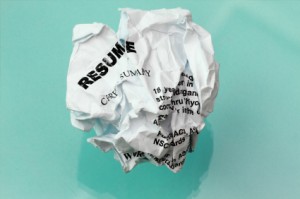
Common wisdom suggests that when you have found a new job you quit hunting for a new one. This is a mistake that the vast majority of professionals make and it’s one that is typically detrimental to their careers. Constantly looking for new opportunities not only keeps you current with what positions are available, it also keeps you fresh in your current position.
Continuing to search for a new position isn’t necessarily an active pursuit. When you are reasonably happy in your current position and not really looking to change either your career or your employer, job search takes on a more passive role. Much of what you do during an active job search is ignored, such as cold calling, applications and interviewing. In a passive job search you keep your resume updated and you occasionally examine what is open in your field.
Networking is still a part of a passive job search, but instead of looking for a new job you are looking for contacts. Meetings, seminars and various network gatherings can be a fun way to meet new people as well as stay current in what your field is offering to new job candidates. It’s also a way to stay current on new trends in your area of expertise as well as current salary ranges; this can be helpful during your next salary negotiation or promotion meeting.
Staying in the hunt for a new job also means that you are ready to hit the ground running should you suddenly need to make your passive search an active one. In an uncertain world it’s good to have this in your career arsenal.
How Networking Affects Your Job Search
NetworkingIs Going Back to Graduate School Worth the Additional Cost?
Assessments & Education

One of the first things people do during a slow economy is consider hiding out in the academic world. Of course they don’t consider it hiding out. They apply to and are accepted to work on a graduate degree in the hopes that the additional degree will give them better career opportunities and that by the time they complete the degree the economy will have turned around. Graduate degrees are not always the answer. Sometimes they are a poor financial investment.
There are some occupations, psychology is one, that without an advanced degree, you can’t really work in the field in the manner you want. To be a licensed psychologist, for example, you have to have a doctorate. Even to be a licensed counselor will require a master’s degree. Careers like this, those that require a terminal degree, are not the ones in question.
The careers in question are often technology and business careers. A bachelor’s degree in computers, and then hands on, real world, experience is far more valuable than a master’s degree with no work history. Business degrees have a similar problem. One of the biggest financial mistakes you can make is to set your business career aside and work full time towards your M.B.A. Business careers cannot be successfully put on hold. While an M.B.A. is certainly desirable, get it while you are working. This allows you to continue adding to your real world knowledge and keep up your networking while furthering your academic credentials.
Before setting aside the time and placing yourself into debt for a graduate degree, make sure that it’s worth it in the long run.

The job market is competitive. And it is even more competitive today than ever before. This means that you need to up your game and quit playing around. You can’t just put skills or experience on your resume haphazardly. If you do that you are writing your resume as though you are the only person applying for the job. That is the farthest thing from the truth. You are competing against many applicants who are just as qualified as you are. So what do you do? You compete. You show that you are the best candidate for the job. How do you do that? You make your resume speak for you and make you look impressive. Just follow the tips below to help you create an impressive resume that will compete against the other applicants.
- Organization: The way you organize your resume may seem like a simple thing, but it can change the impression that your potential employers get when they read your resume. Organize your skills by listing the most applicable skills to the job first. If you are not sure what skills will be most applicable, then list your strongest skills first. Do the same with your experiences. List the most applicable or the most impressive experiences first. This will put stronger focus on the most important skills and experiences in your resume.
- Keywords: Use keywords throughout your resume to put emphasis on the skills or ideas that you want your potential employers to remember about you when they are deciding about interviews and the job. Don’t overdo them though. If you use keywords too repetitively, then it will turn off employers and possibly annoy them. Keep a good balance. If you are unsure, then have someone read over your resume to see if you have used to many keywords.
These are just two very simple ways that you can make your resume more competitive and more impressive to potential employers, which will lead you to getting an interview and hopefully getting that job.
How to Get a Job When No One Is Hiring
Job Search
The most popular misconception when the economy is less than outstanding is that no one is hiring. It’s actually almost never true that no one is hiring. What is true is that companies tend to streamline when times are tough and while they may not officially be hiring, there is always room for someone with a proven track record. Most job seekers are fully aware that it’s easier to get another job when you already have one and that is never more true than when the economy is down.
The problem is that when you suddenly find yourself without a job it can be tough to both deal with the emotional shock and hit the ground running to find another job as quickly as possible. There is where your previous networking skills as well as an updated resume come into play. You can immediately start looking and contacting people letting them know that you are looking for a job change (think: networking & LinkedIn).
It’s also important to remember that you have a proven record of success and you have been in the business world for a number of years. This immediately places you ahead of many candidates that are recent graduates with no real-world experience. Unfortunately, many young people today do not have the appropriate business skills, and as a result many hiring managers are reluctant to interview them. They have a large pool of seasoned applicants to choose from so they opt for experience. This works in your favor if you have practical experience.
The best way to get a job when no one is hiring is to remember that there is always room for someone who is energetic, driven and has a resume that shows them to be an asset to their employer.
Why December is a Great Month For Hiring
Job SearchJob Hunting When You Are Pregnant
Job Search
Many people will be inclined to tell those who are pregnant to wait until after they have the baby before searching for a new job. This isn’t always possible due to financial circumstances. While it can be understandable that some employers are reluctant to hire someone who will likely be requesting maternity leave almost immediately, it’s not impossible to find those that are willing to hire a pregnant woman when she is the best candidate for the job.
Because there are different stages to a pregnancy, many women who are not noticeably pregnant wonder about the ethics of not telling a hiring manager about their condition. Ethically speaking, unless you are lying, there is no problem. Of course as a new hire you would want to be as upfront with your new employer as possible. Until you have actually been hired however, it’s not a real issue.
The best way to handle the matter as a new hire is to be upfront and honest. Simply tell your employer that you are pregnant and ask if this is going to be a problem considering that you are a new member of their staff. You may need to negotiate returning from maternity leave early or possibly working from home. Try and be as accommodating as possible as this will pay off further down the line particularly during promotion talks.
When actively hunting for a new job while obviously pregnant, try to not call attention to it and allow your work history and skills to speak for themselves. Many employers are far more concerned about those aspects of your history than your temporary condition of being pregnant. As in many cases, if you don’t bring it up then neither will they.

You have worked hard and maybe even hired a professional, but you finally have a fantastic resume that highlights every positive aspect of your career perfectly. You have followed every hint for networking and job search that you can find mentioned anywhere. After all of that you are still not getting called in for interviews and are left with the question of whether or not you should dumb down your resume.
This is a popular idea right now because of the state of the economy. The thinking is that if you dumb it down, then you might get more interviews because you will no longer be overqualified for the positions you are applying for and thus not being interviewed. While there is a certain amount of logic to this it doesn’t mean that lying on your resume if a good idea.
Any type of lie, even one of omission of positive facts can be used against you later on in your career. Most importantly, when the deception is discovered, it could be grounds for immediate termination. At best, eventually your boss is going to find out that you lied and wonder what else you have lied about. This is also a pointless exercise because you will probably be caught even before the interview.
There is a paper trail to your life and often an interviewer does a cursory check of the basic credentials of candidates before scheduling an interview. You can’t be certain that your omissions will not come to light then and remove you from candidacy immediately. The better suggestion is to keep applying and handle your over qualifications in your cover letter.
